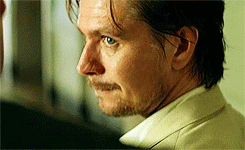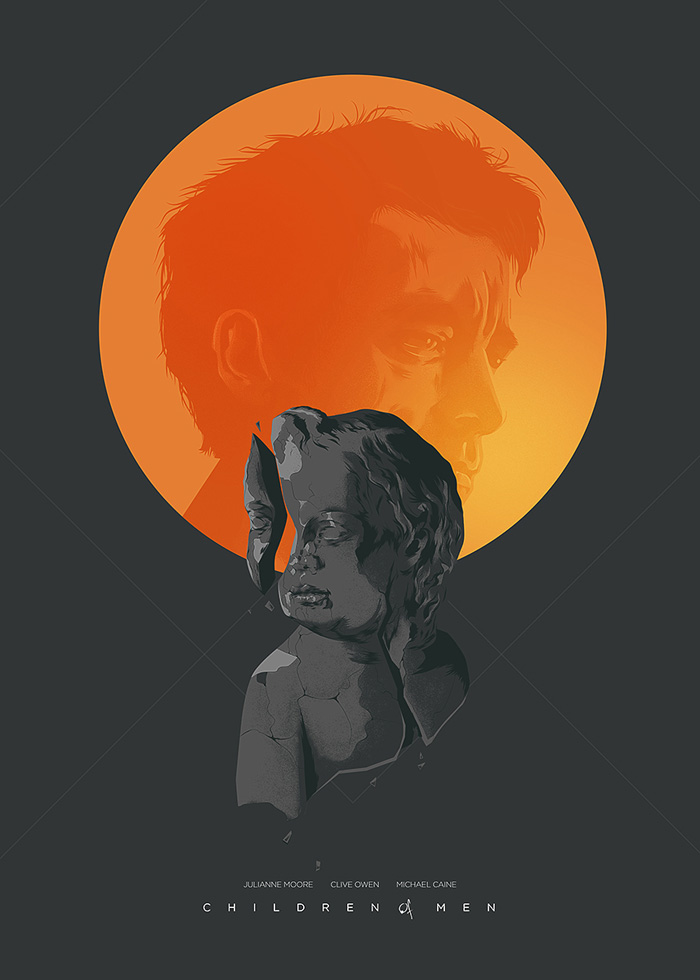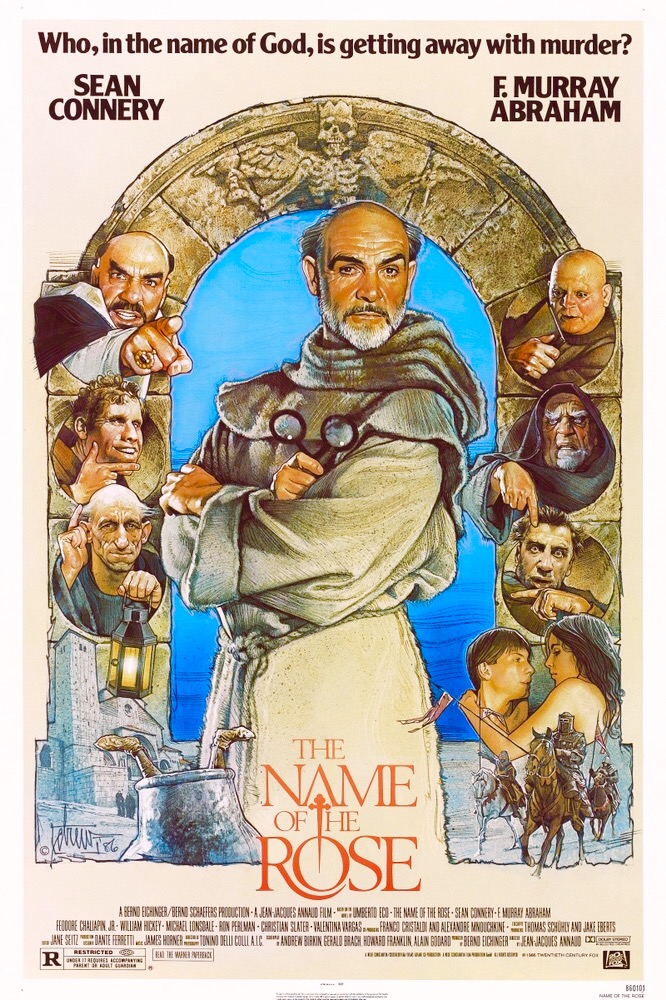When we say that
Children of Men is, without a doubt, one of the best films made in this century, we put this claim forward calmly and only after long and detailed deliberation. The main argument for the inclusion of Alfonso Cuarón’s 2006 dystopian science fiction thriller in this prestigious company actually has little to do with the astonishing and somewhat distressing fact that Cuarón’s vision of the future is so close in resemblance to our current day situation we could even call the filmmaker some kind of a prophet. Yes, the bleak, terrifying image of the world Cuarón foresaw for the year 2027 has a lot more in common with our present than any sane person would possibly hope for, but even the director himself would wave it off and refuse to accept a compliment regarding the visionary aspect of his work, simply explaining there are no prophetic qualities in
Children of Men. He made the film with his eyes wide open, aware of the situation in the world and perceiving clearly the obvious signs of what direction the world was taking as early as then.
Children of Men belongs to the elite gallery of top-notch films simply because it was made with extreme technical virtuosity, displaying a very high level of talent behind and in front of the camera. Shot by Cuarón’s
favorite cinematographer, the great Emmanuel “Chivo” Lubezki, the film demonstrates a unique, precise and shattering vision of the darkness lying before us, characterized by innovative, ingenious use of the camera and a fresh, unexpected news-reel approach to fabulous action sequences we’re still unable to forget. Even today we get goose bumps recalling that car ambush scene shot in one take, blown away by Cuarón’s magic that enabled us to sit among the protagonists and experience the panic, fear and horror as it was happening to us, allowing us, perhaps like never before, to become active participants in those shocking moments of on-screen violence. Moreover, Cuarón’s abhorrence for clumsy, unimaginative, easy-path exposition made sure he used images to reveal the story’s background and offer us all information needed to construct the greater picture. All a spectator needs to do is keep their eyes open. Nothing in this film is on tape accidentally, and even if something was shot by accident (like the famous blood-splashing-on-the-camera-lens detail during the aforementioned thrilling one-take assault scene) was kept in the film for artistically solid reasons.
Casting-wise, the crew was exceptionally composed. Clive Owen was ideal for the role of the terrified individual aware of the level of chaos in the world he lives in, but deciding to deal with it with cynicism and passivity. Years before he established himself as one of Hollywood’s quality choices, Chiwetel Ejiofor proved capable of portraying complex characters. The always solid Julianne Moore might be here only for less than a half an hour, but if we choose to take the meta-path in this analysis, we might say that even the fact Cuarón decided to hire such a strong name for such an unexpectedly short role may suggest it was another way of emphasizing that things might not be as they are presented to us by the media, that the real state of things doesn’t always resemble what the newspapers, often heavily influenced by political forces eager to shape information the way it suits their purpose, like to serve us as facts.
Children of Men, we say again, would be a marvelous film even if Cuarón and his writing partners hadn’t managed to describe the world we live in today with such astounding precision. This additional component, however, gives the movie another layer of quality and even greater significance, as well as it perhaps partly explains why
Children of Men underachieved at the box office. The Western audience, living in a comfortable bubble, preferred shallow, escapist entertainment which had nothing to do with the unpleasant themes of nationalism, chauvinism, refugee crises and the shape of the future we leave for the following generations.
The film is actually a very loose adaptation of P. D. James’ 1992 novel of the same name. The original adaptation was written by Paul Chart, only later to be rewritten by Mark Fergus and Hawk Ostby. Alfonso Cuarón was brought on board in 2001, but he chose not to read the original novel, beginning a rewrite with his chosen screenwriter Timothy J. Sexton. The creative process was put to a halt when Cuarón set out to make
Harry Potter and the Prisoner of Azkaban, but his work on the film only enhanced his desire to make
Children of Men. In his absence, screenwriter David Arata finished another rewrite. Cuarón chose to use several things from James’ work, but decided to stick with his original vision, working with Lubezki to create the special visual identity of the film and, determined to use images in the background as the main means for telling the wider story, even met with the legendary graffiti artist Banksy’s representative to include his work in the film. One of the uncredited contributors to the final version of the screenplay was Clive Owen himself. The film was edited by Cuarón and his partner Alex Rodriguez, who previously collaborated with him on
Y Tu Mamá También. Throughout the film Sir John Tavener’s ‘Fragments of a Prayer’ was used so Cuarón could additionally avoid using narrative, allowing the composition to contribute to the explanation of the action and psychological and emotional state of the characters. Besides the classical work of Handel, Mahler and Penderecki, Cuarón also used combinations of rock, pop, electronic music and hip hop.
It would be perfectly legitimate to discuss the message this film sends out to the world, if there is one in the first place, or the true meaning of its puzzling ending. Cuarón himself stated he wanted the viewers to interpret the film on their own, that there is no correct answer, suggesting this kind of ambiguity is an essential part of all great works of art. What some people will see as an undeniable proof of the hopelessness of our situation and the human condition, others might perceive as a beam of light shooting through the darkness and finding its way to all individuals willing to open up to the changes happening around us. For us, this gray presentation on the future and the present will forever be marked with an ounce of positivity and a spoonful of hope. The message we choose to absorb from this film is simple: get up, shake away the collective apathy and replace this couch-potato passivity, if not with real activism, then with eyes opened wide, a sharp mind refusing to be manipulated and, most of all, with warmth and compassion for the people with whom we share this world that’s slowly sinking into self-destruction.


















